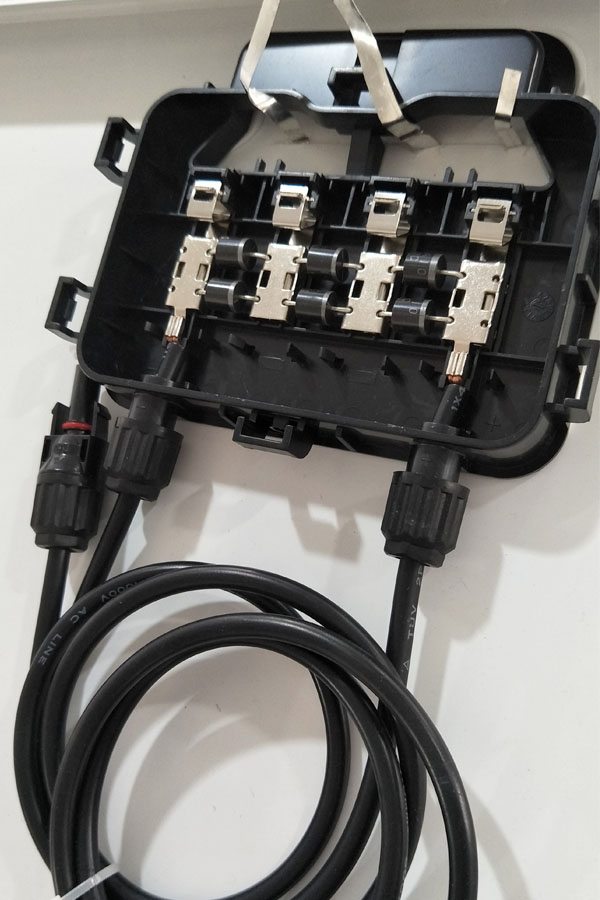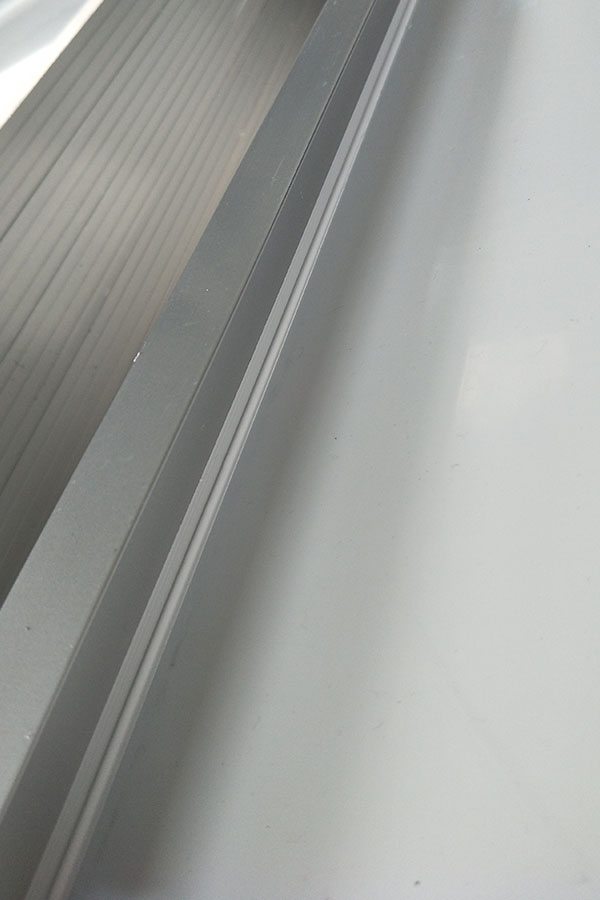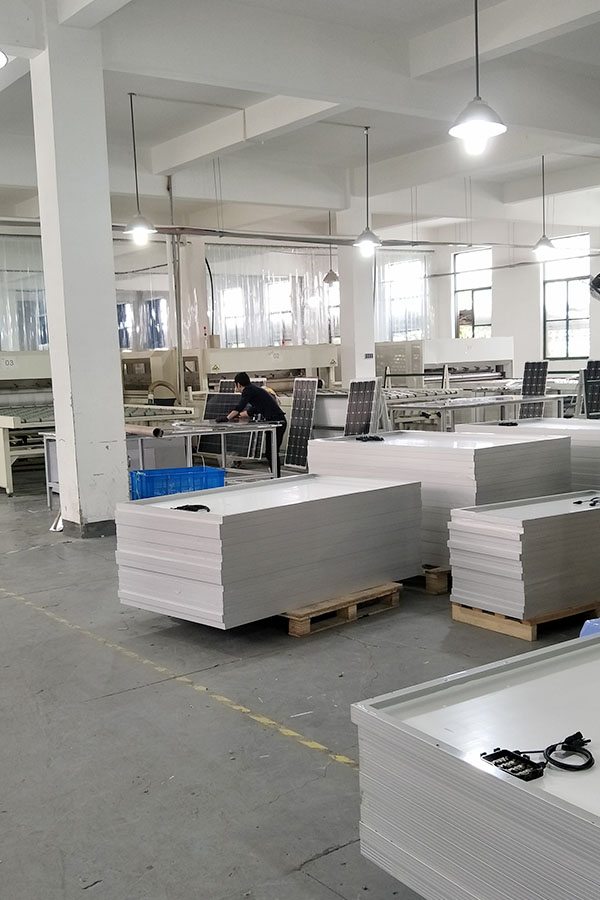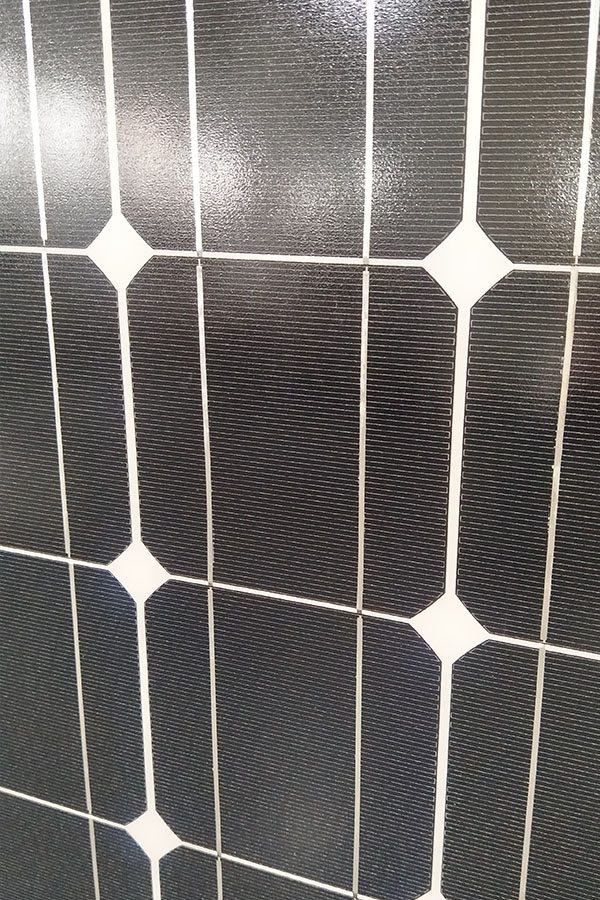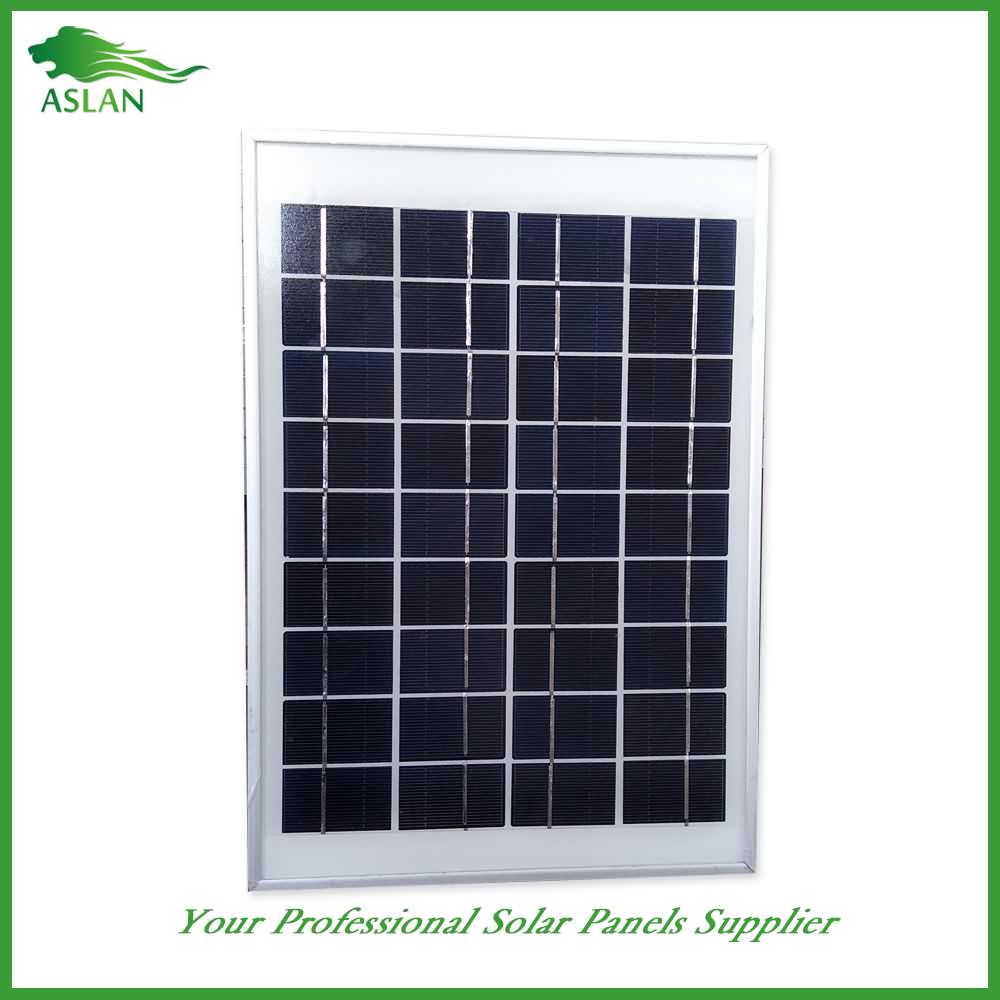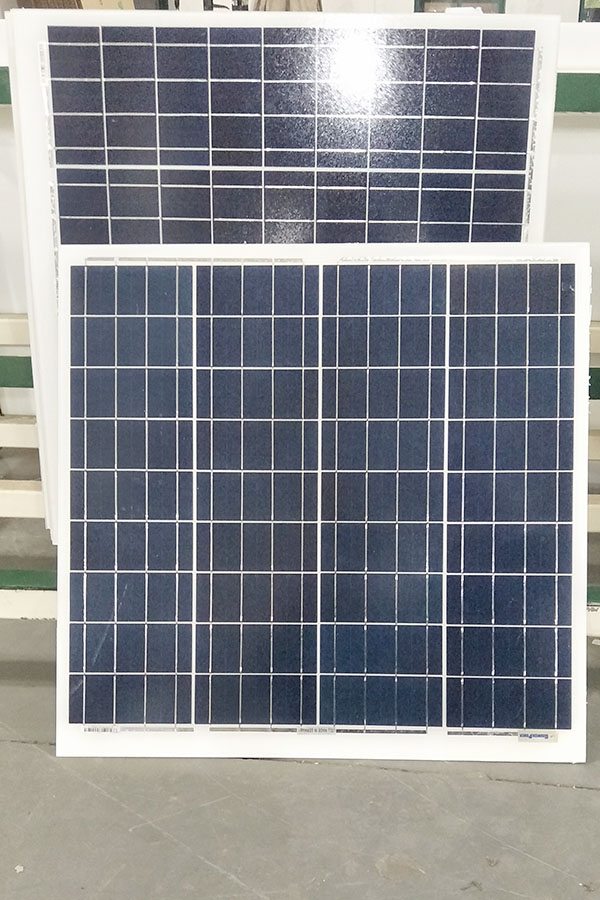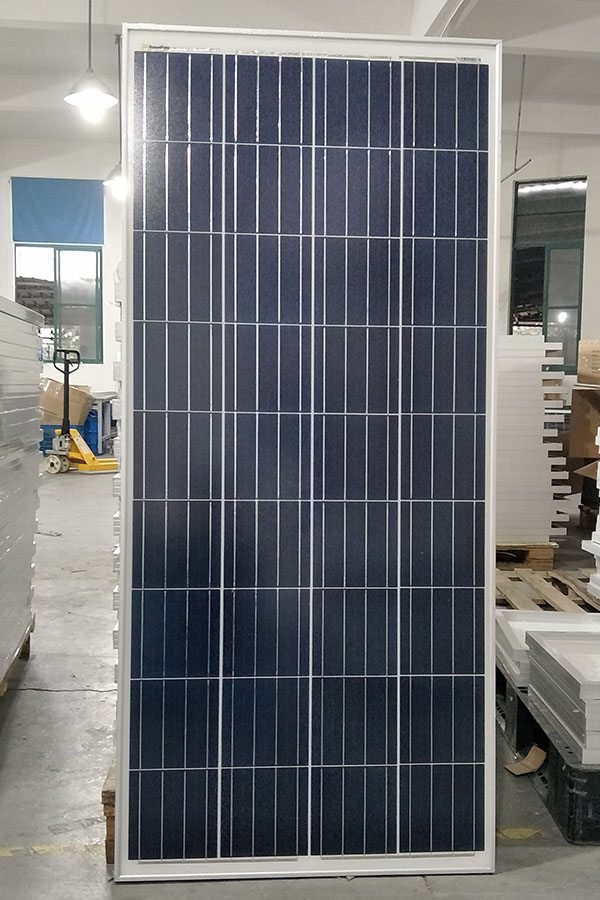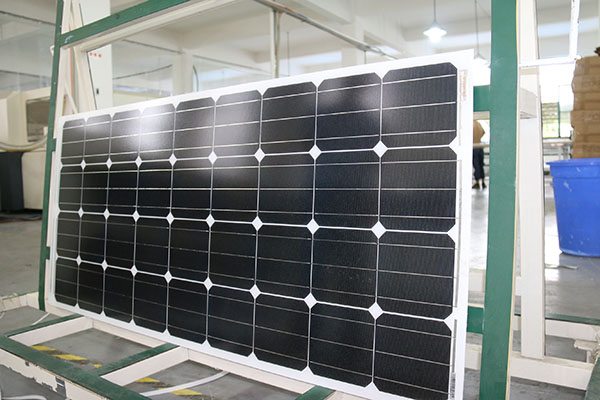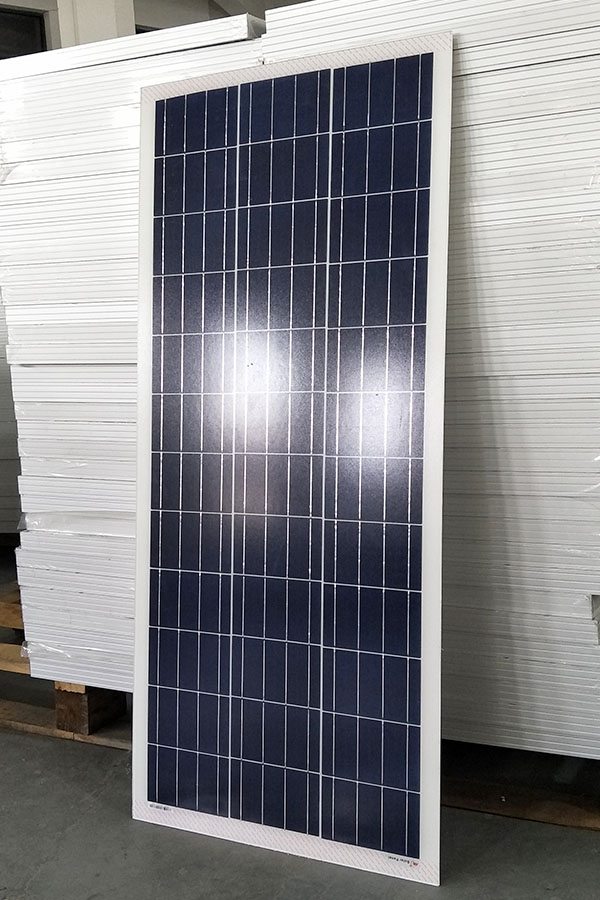High Definition For Mono-Crystalline 300W Solar Panel Factory for Miami
Short Description:
To constantly improve the management system by virtue of the rule of "sincerely, good faith and quality are the base of enterprise development", we widely absorb the essence of related products internationally, and constantly develop new products to meet the demands of customers for High Definition For Mono-Crystalline 300W Solar Panel Factory for Miami, We sincerely welcome overseas customers to consult for the long-term cooperation and the mutual development.We strongly believe that we can do better and better.
Mono-Crystalline 300W Solar Panel
Technical parameter
Maximum Power(W) 300W
Optimum Power Voltage(Vmp) 37.45V
Optimum Operating Current(Imp) 8.15A
Open Circuit Voltage(Voc) 45.60V
Short Circuit Current(Isc) 8.91A
Mechanical Characteristics
Cell Type Monocrystalline 156x156mm (6 inch)
No of Cell 72 (6x12pcs)
Dimensions 1950x990x50mm
Weight 22.1Kg
Front Glass 3.2mm,High Transmission, Low Iron,Tempered Glass
Junction box IP65 Rated
Output Cable TUV 1×4.0mm2/UL12AWG,Length:900mm
Temperature and Coefficients
Operating Temperature(°C): -40°C ~ + 85°C
Maximum System Voltage: 600V(UL)/1000V(IEC) DC
Maximum Rated Current Series: 15A
Temperature Coefficients of Pmax: -0.47%
Temperature Coefficients of Voc: -0.389%
Temperature Coefficients of Isc: 0.057%
Nominal Operationg Cell Temperature (NOCT): 47+/-2°C
Materials of solar panel
1).Solar Cell——Mono-crystalline solar cell 156*156mm
2).Front Glass——-3.2mm, high transmission, low iron, tempered glass
3).EVA——-excellent anti-aging EVA
4).TPT——-TPT hot seal made of flame resistance
5).Frame——anodized aluminum profile
6).Junction Box——-IP65 rated, high quality, with diode protection
Superiority: high quality anodized aluminum frame, high efficiency long life, easy installation, strong wind resistance, strong hail resistance.
Features
1. High cell efficiency with quality silicon materials for long term output stability
2. Strictly quality control ensure the stability and reliability, totally 23 QC procedures
3. High transmittance low iron tempered glass with enhanced stiffness and impact resistance
4. Both Polycrystalline and Mono-crystalline
5. Excellent performance in harsh weather
6. Outstanding electrical performance under high temperature and low irradiance
Quality assurance testing
Thermal cycling test
Thermal shock test
Thermal/Freezing and high humidity cycling test
Electrical isolation test
Hail impact test
Mechanical, wind and twist loading test
Salt mist test
Light and water-exposure test
Moist carbon dioxide/sulphur dioxide
http://www.uec-electronics.com/mobile-power-products/power-generation/
- Solar Power Collection
- Hybrid Power Generation
- High Density Energy Storage
- Rapid ROI – Fuel, Maintenance, and Rapid Logistics
- Reliable and Combat Proven
UEC Electronic’s Ground Renewable Expeditionary Energy Network System (GREENS) saves fuel, money, and reduces the frequency of resupply missions. GREENS is the first viable solution to replace traditional fuel-fired generators. GREENS was developed as a USMC Program of Record but has applicability to both civilian and military customers. The system collects solar energy and converts it into useable power. Excess solar energy is stored in the array of high energy density battery systems (HEDBS) for use when solar energy is insufficient. The system is light-weight and man portable. The GREENS HEDBS is safe, and has been approved as UN/DOT Class 9 tested for commercial shipment.
———————————————————————————————————–
One GREENS will provide up to 1kW of power, and up to five systems can be paralleled together to provide 5 kW of power. No formal operator training is required. System deployment time is quick less than 15 Minutes by an untrained user. The system can be used as a completely renewable solution, or can be used in a hybrid configuration with a generator. If used as a hybrid solution, the GREENS controller will auto-start the generator if necessary to recharge the batteries, and will run the generator at peak efficiency.
I’ve been exploring technology made possible by having clear, patterned electrodes on glass, and succeeded in making a working (barely) LCD. In this video, I explain types of liquid crystal molecules, and how they can be used to make an efficient display.
